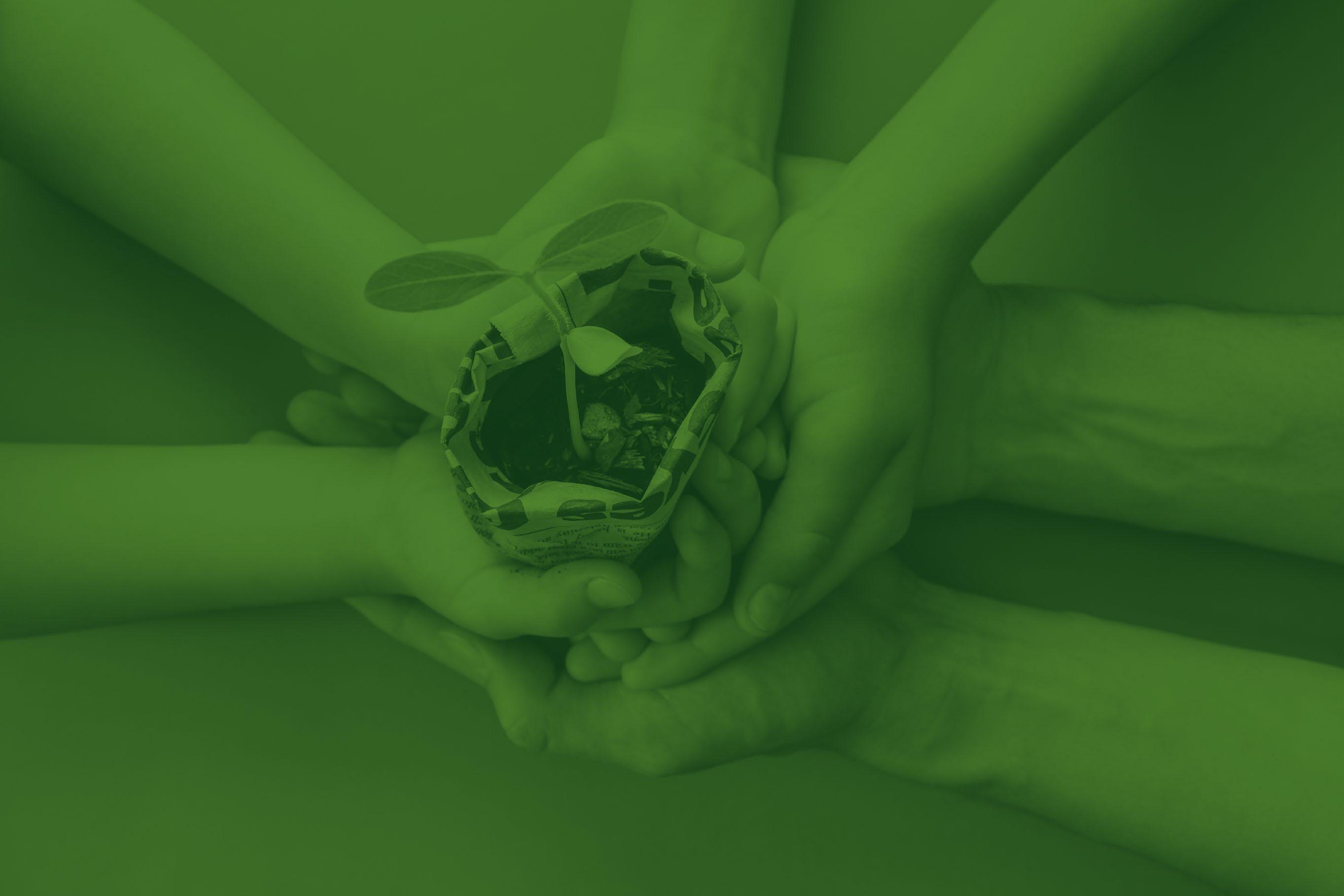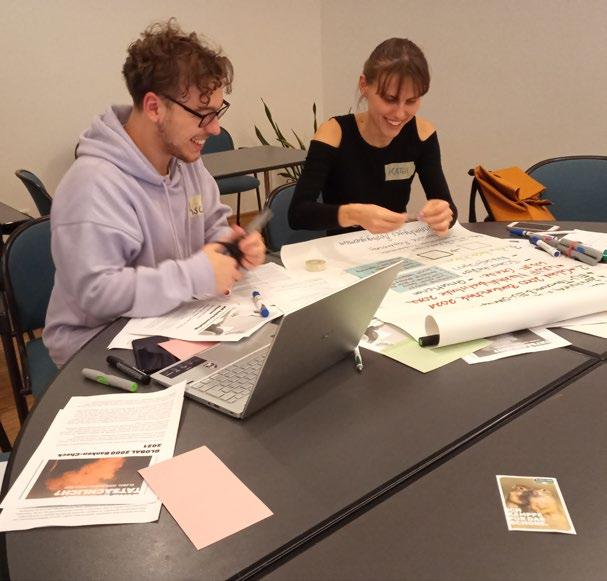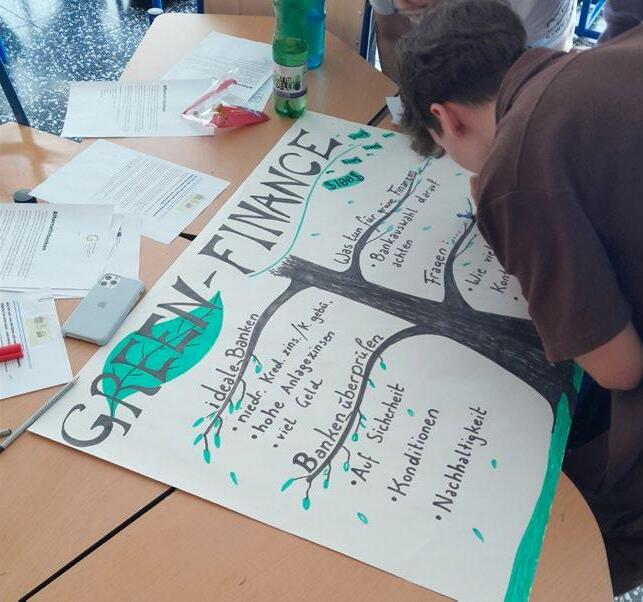






Title Greening Financial Literacy: Educational Framework and Toolkit
Year 2024
Publisher Greening Financial Literacy Project Partners
Editor Mario Bajkuša, Forum for Freedom in Education, Croatia
Contributors Nathalie Harms, GLOBAL 2000, Austria
Christina Hanauer, GLOBAL 2000, Austria
Emilia Tafel, Facing Finance e.V., Germany
Ioanna Lagiokapa, KMOP, Greece
Leila Younis, Forum for Freedom in Education, Croatia
Mario Bajkuša, Forum for Freedom in Education, Croatia
Layout ACT Printlab, Croatia
This publication is part of the project “Greening Financial Literacy” (2022-1-AT01-KA220-YOU-000086358).
Funded by the European Union. This publication reflects the views only of the contributors, and the European Union cannot be held responsible for any use which may be made of the information contained therein.
Sustainability is undeniably one of the world’s most pressing challenges today, encompassing critical issues like climate change, biodiversity loss, deforestation, and more. As a global community, we are all responsible for addressing this urgent matter. However, we also must recognise that some entities bear a more significant burden in fighting for a sustainable future.
Financial institutions, particularly banks, have an additional responsibility to address this challenge. Their economic and investment decisions regarding climate-damaging business activities or projects have far-reaching and long-term impacts on the environment and communities. Hence, banks can have significant leverage to contribute to a just and environmentally friendly economy by aligning their financial decisions and investment practices with environmental and social standards and financing sustainable businesses. However, having the majority of the financial sector on board requires an extra push from concerned citizens and their customers to disengage from supporting and financing industries and projects that cause significant environmental harm at home and abroad. Citizen awareness and critical evaluation of the connections between financial institutions and sustainability issues are essential to encourage positive change.
The Greening Financial Literacy project seeks to integrate sustainability, particularly environmental standards, into financial literacy education. By doing so, it aims to raise awareness among young individuals about the crucial link between financial institutions and environmental sustainability, especially in the context of the climate crisis. Empowering people with this knowledge can lead to more informed choices and support for sustainable practices within the financial sector and beyond.
The Project Consortium primarily explored the link between the banking sector and climate change. However, the educational framework is versatile enough to apply to any financial institution. Whether it be banks, credit unions, investment firms, insurance companies, pension funds, or others, the framework can be a starting point in addressing the link between these entities and environmental sustainability. Therefore, to ensure its applicability across various financial sectors, in this publication, we use general terms such as “financial institutions” and “environmental sustainability.” The framework also allows the focus to shift to other dimensions of “sustainability,” such as social aspects (e.g., human and labour rights issues).
We want to emphasise that the framework and toolkit are not a guide to personal finance or how to increase one’s wealth, nor do they advertise specific products, providers, etc. The educational framework and toolkit presented here are a call to action for young people and educators to get active on climate change and be aware of the power of their money and the responsibility that comes with it.
This publication presents the project’s educational framework in its first part. The framework aims to equip young individuals with fundamental knowledge and tools and provide support for critically assessing the connection between environmental sustainability and financial institutions. As a non-formal educational activity, it puts the learner at the centre. In the second part, the Toolkit, one can find examples of tried and tested approaches to “green financial literacy” with particular groups of young people. The aim is to encourage young people, youth workers, educators and teachers to explore this topic and become empowered to make the next step.

The framework’s overall objective is to empower young people to navigate the intersection of financial institutions and environmental sustainability. The specific objectives are:
A. Provide fundamental knowledge of key terms, concepts, and policy documents related to financial institutions and environmental sustainability;
B. Develop a basic understanding of the intersection between financial institutions and environmental sustainability;
C. Encourage critical evaluation of environmental implications arising from the current context and emerging trends related to financial institutions, products, and activities;
The education framework’s primary target group is individuals aged 16 to 30 who seek to enhance their understanding of financial institutions, environmental sustainability, and their intersection. This target group will have basic but varying levels of financial literacy
D. Encourage citizen participation in formulating a vision for a sustainable future and proposing actionable pathways;
E. Boost motivation and confidence to investigate financial institutions’ sustainability practices and encourage active engagement in communication with them.
F. Enhance foundational skills in facilitating non-formal education activities.
The educational framework comprises a three-hour workshop and a four-hour peer educator training
The framework can be implemented as described in this publication. It is designed for the general profile of young people but can
and sustainability awareness, and facilitators should be aware of this when preparing their session plans. Facilitators can ask participants to self-evaluate their knowledge of these two topics if needed.
also be offered to the general public. The framework is suitable for adaptation for specific subgroups (e.g., young activists, young NGO workers, young teachers, etc.) or building specific subtopics (e.g., country-specific topics or issues).
The initial educational activity is a workshop aiming to introduce learners to fundamentals related to finance and sustainability and the link between them, as well as motivate them to investigate and engage with the issue. The proposed duration of the workshop is three 60-minute sessions.
While all specific objectives are relevant and should be considered when developing the workshop plan, the following should take precedence when planning the workshop:
A. Provide fundamental knowledge of key terms, concepts, and policy documents related to financial institutions and environmental sustainability;
A. Provide fundamental knowledge of key terms, concepts, and policy documents related to financial institutions and environmental sustainability
B. Develop a basic understanding of the intersection between financial institutions and environmental sustainability
C. Encourage critical evaluation of environmental implications arising from the current context and emerging trends related to financial institutions, products, and activities
E. Boost motivation and confidence levels to investigate the sustainability practices of financial institutions, as well as encourage active engagement in communication with financial institutions
B. Develop a basic understanding of the intersection between financial institutions and environmental sustainability;
C. Encourage critical evaluation of environmental implications arising from the current context and emerging trends related to financial institutions.
Additionally, the following objective should be interwoven into the sessions:
D. Boost motivation and confidence levels to investigate financial institutions’ sustainability practices and encourage active communication with them.
All these objectives are operationalised into educational outcomes as follows:
A.1. Learner defines and explains key financial literacy and sustainability terms.
A.2. Learner names and describes the relevant policy documents and their implications for promoting sustainable financial practices.
B.1. Learner describes the relationship between sustainability and the financial system.
B.2. Learner analyses the impact of financial decisions on climate change.
C.1. Learner describes the participatory perspective when making financial decisions.
C.2. Learner identifies and uses appropriate tools and strategies to advance sustainability principles.
E.1. Learner shows motivation to explore a particular financial institution’s environmental sustainability research activities.
The Peer Educators Training (PET) targets workshop participants interested in actively contributing to their communities or increasing their involvement as peer educators. Hence, the PET builds on the workshop’s objectives and content, offering (at least) two paths based on the specific educational group profile.
F. Enhance foundational skills in facilitating non-formal education activities
One path focuses on enhancing the participants’ facilitation abilities, and it is intended for participants with specific knowledge about the link between financial institutions and environmental sustainability. For example, suppose the educational group comprises participants with knowledge of finance and sustainability content (e.g., activists, NGO employees in the field, etc.). In that case, the educational program can be adapted to focus more on non-formal education activities, dissemination, and participation. The educational objectives and outcomes for this path are as follows:
F.2. Learner identifies and defines educational objectives and educational outcomes.
F.3. Learner proposes appropriate strategies and methods.
E. Boost motivation and confidence levels to investigate the sustainability practices of financial institutions, as well as encourage active engagement in communication with financial institutions
E.1. Learner independently evaluates the sustainability practices of financial institutions and proposes possible courses of action.
E.2. Learner develops a plan of next steps as a peer educator.
The other path caters to individuals who already possess facilitation skills, providing them with advanced training to delve deeper into the interconnectedness of financial institutions and environmental sustainability (i.e. content). For example, suppose the group has members with extensive knowledge and
C. Encourage critical evaluation of environmental implications arising from the current context and emerging trends related to financial institutions, products, and activities
D. Encourage citizen participation in formulating a vision for a sustainable future and proposing actionable pathways
E. Boost motivation and confidence levels to investigate the sustainability practices of financial institutions, as well as encourage active engagement in communication with financial institutions
F. Enhance foundational skills in facilitating non-formal education activities
experience in teaching, education, dissemination, and participation (e.g. young professionals, young teachers, youth workers, etc.). In that case, the program can focus more on the content related to finance and sustainability. For this path, the following objectives and outcomes are defined:
C.1. Learner evaluates and discusses sustainability implications arising from the current context and emerging trends
D.1. Learner articulates a vision for a sustainable future.
E.1. Learner independently evaluates the sustainability practices of financial institutions and proposes possible courses of action
E.2. Learner develops a plan for the next steps as a peer educator.
F.3. Learner proposes appropriate strategies and methods.
Organisations and facilitators must carefully consider group characteristics when developing detailed program and/or session plans to accommodate the group’s specifics, considering the program’s overall and specific objectives, which may also mean adapting the framework beyond the description presented here.
The facilitator should consider interactive, engaging, and participatory teaching and learning strategies in the workshop and PET planning. The following is a non-exhaustive list of teaching and learning strategies and tools:
• Visual aids: Utilise visual aids such as presentations, charts, diagrams, and infographics to enhance the understanding of terms and concepts.
• Case studies: Providing real-life case studies and examples illustrating the application terms and concepts can enhance understanding of how key terms and concepts are applied in real-world scenarios.
• Role-playing: Assigning roles and engaging in role-playing exercises can help participants understand different stakeholders’ perspectives and decision-making processes in finance and sustainability contexts, e.g. a conversation with a representative of financial institutions.
• Interactive exercises: Engage participants through interactive exercises, such as quizzes, puzzles, or simulations. Implement these exercises using digital tools.
• Speakers: Invite or listen to speeches by experts/practitioners to share their experiences and insights. Their expertise can provide valuable real-world
perspectives and inspire participants to delve deeper into the subject.
• Group discussions: Divide participants into small groups and assign them specific topics or terms to discuss. Encourage active participation and facilitate discussions to promote a deeper understanding of the material.
• Additional materials: Provide participants with readings, articles, policy documents or video materials. This materials library can be created using appropriate digital tools.
• Summarise, review, reflect: Dedicate time at the end of the session to summarise the key takeaways, review the main concepts covered, or reflect on the whole session.
Exposing participants to real learning experiences can effectively teach facilitation skills and allow them to deepen their knowledge and skills about the intersection of finance and sustainability while also introducing them to the principles of non-formal education and methods of personal involvement. In this case, it is important to have a debriefing session at the end of each session to reinforce the learning and provide participants with an opportunity to reflect on their experiences, emphasising facilitation skills and techniques. This approach will give participants the fundamental and foundational skills to educate, disseminate, and discuss these critical issues.
Organisers and facilitators can add sessions to allow participants to reflect on their learning journey throughout the educational framework. During this session, participants can identify areas of personal growth or create action plans outlining concrete steps to apply their newly acquired knowledge and skills in their personal and professional lives.
After both the workshop and the PET, the evaluation should be conducted. The minimum requirement is for the participants to use an anonymous evaluation form.
Participants should be awarded a certificate of participation at the end of the workshop. To be eligible for the certificate, participants must attend the whole workshop. The certificate should bear the participant’s name, the workshop’s title, and the workshop’s duration (three hours) as a minimum requirement.
Participants continuing to the PET should be awarded a joint certificate for both the workshop and the PET. As in the workshop, participants should be awarded a certificate of participation at the end of the PET. To be eligible for the certificate, participants must be present at both the workshop and the PET. The certificate should bear the participant’s name, the workshop title, and the duration of both.
Organisers can opt to issue Youthpass1 to participants as well.
1 For more information see https://www.youthpass.eu/en/.

Global 2000 has implemented a three-hour face-to-face “Green Finance Workshop” for volunteers, secondary school students, and everyone interested in “greening” their finances. The workshop introduced “green finances” and provided participants with specific tools to understand and check the connections between banks’ businesses and the climate crisis. It also empowered participants to question the banking sector’s influence on sustainability, consider their financial priorities, and advocate for a more sustainable financial market.
The workshop used interactive and participatory methods to support peer learning by assigning participants to three different learning stations after being briefly introduced to banks’ influence on the climate crisis. At each learning station, they took one of three roles in the finance sector: Banks, Climate Crisis and Environmental NGOs, and Bank Customers. Participants discussed different conceptions of the corresponding topic at each station and answered relevant questions At the end of the group work, they created a poster summarising their most important takeaways. Afterwards, the groups presented their posters to the

other participants, allowing them to appropriate the topics independently, learn from each other, and combine the different actors and influences of the financial market like a puzzle.
What an ideal bank looks like for the participants

After the group work, the workshop continued in a plenum setting. Participants were introduced to the questions for a “Green Finance Toolkit” that combines the most important tools to check the connection between the banking sector and sustainability. These questions were: What does an ideal bank look like? What are the dos and don’ts when screening a bank? How can we get active in advocating a more sustainable financial sector? Participants were encouraged to consider ideas to stand up for green finances. Afterwards, they received a “Toolkit Handout” as a guideline for further steps. Further details and the “Green Finance Workshop” agenda are in the “Implementation” chapter.
At the end of the workshop, participants could sign up for an additional four-hour “Peer Educator Training” to receive training on conducting green finance workshops themselves, especially for their peers.
After the training, Global 2000 supported the Peer Educators by recruiting participants and providing them with premises for workshops. The “Peer Educator Training” is described in more detail in the “Implementation” chapter.
Workshops were conducted face-to-face, mainly at the premises of Global 2000 in Vienna. The workshop was also adapted for schools in a shorter version. For school workshops, the documents for the learning stations have been shortened and rewritten in simple language.
All groups received the same worksheets with three topics/questions for a “Green Finance Toolkit” and were asked to read their texts and directly collect the essential key points. Afterwards, the posters were presented to the other students, and the facilitator summarised the “Green Finance Toolkit” for the class.
The first workshops in autumn 2023 were promoted via GLOBAL 2000’s social media channels (mainly Instagram), newsletter, and magazine. This way, (young) adults who were already interested in sustainability but wanted to learn more about their finances were reached. The organisation’s existing network of volunteers and teachers was also activated Ten workshops were conducted between October 2023 and April 2024, mainly in the afternoon and early evening.